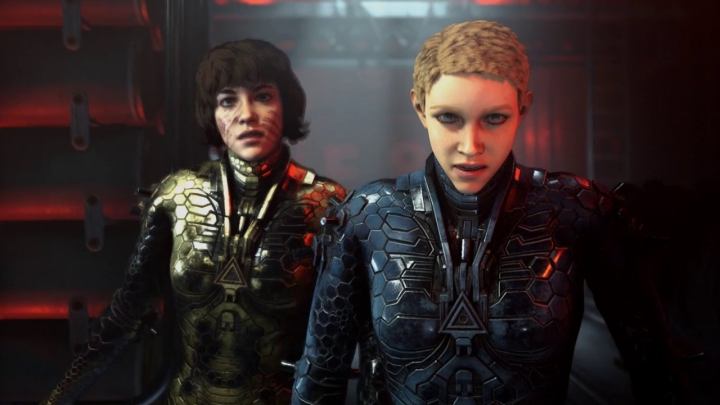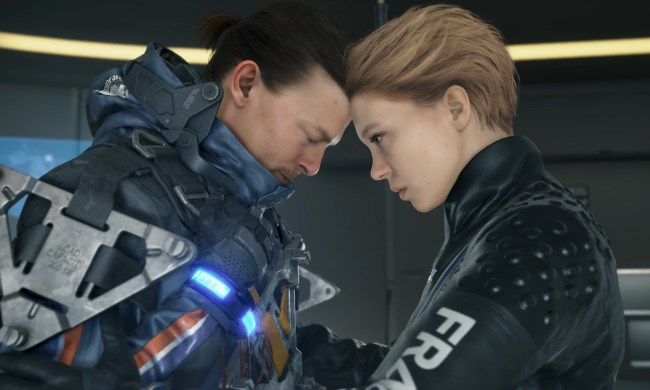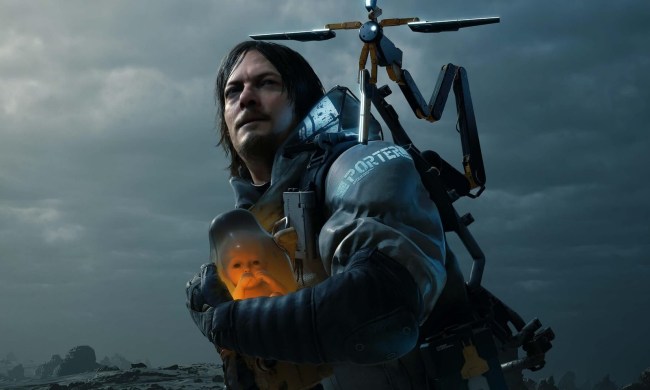2019 had some incredible video games, including action titles like Devil May Cry 5 and Sekiro: Shadows Die Twice, as well as the excellent tactical role-playing game Fire Emblem: Three Houses. There were plenty of other games, however, that failed to meet our expectations. Some of these were games we thought would be incredible, only to have them be mediocre, while others failed to reach the very low standards we had set for them in advance. In the end, all of them left us wishing we were just playing something else, including those we had been waiting years to finally get our hands on. These are the most disappointing games of 2019.
Death Stranding

Hideo Kojima is the closest thing the video game industry has to a Werner Herzog or David Lynch — a director who makes the games he wants to make. Normally, that turns out extremely well for players, too, as we saw with the Metal Gear series over the last several decades. Now free of Konami, however, Kojima’s latest game Death Stranding has us scratching our heads. It has moments of brilliance in its storytelling and plenty of atmosphere, but Death Stranding also feels like yet another sign that Kojima should just make movies, instead. The delivery gameplay can get in the way of what makes its world special, rather than enhance it.
Read our full Death Stranding review
Anthem

Following the lackluster Mass Effect: Andromeda in 2017, all eyes were on BioWare’s original Edmonton studio to show us all why it was so acclaimed in the first place. Instead, we got Anthem, a Destiny-style loot-shooter that somehow managed to tell a meaningless story while also offering a frustrating gameplay loop. The flight controls and Javelin suit powers available to all players were just short of greatness, as well, making the game’s shortcomings even harder to swallow. Anthem is a game made by a BioWare that doesn’t seem to understand what it means to be BioWare and doesn’t give us hope for the developer’s future.
Read our full Anthem review
Crackdown 3

We didn’t think Crackdown 3 was going to be a massive revelation or a system-defining game for the Xbox One, but we did at least thing that its leveraging of the Azure cloud and current-generation technology would make it a superior game to its predecessors. We were sadly mistaken, as the game plays almost identically to the decade-old original games, with an ugly art style that can’t decide if it wants to be cartoony cel-shaded goofiness or fully embrace more realistic designs. After Crackdown 2 was already seen as a dud, Crackdown 3 might just be the final nail in the coffin for what was once a promising franchise.
Wolfenstein: Youngblood

Wolfenstein II: The New Colossus was one of the best first-person shooters of 2017, telling an ambitious and twist-filled alternate history story that wasn’t afraid to show its outrage with far-right and racist politics. It also packed in satisfying-as-hell combat, with protagonist BJ Blazkowicz killing human Nazis and robot Nazis in equal parts. For the spinoff Wolfenstein: Youngblood, MachineGames put his twin daughters in the starring role, and this could have made for a unique take on the existing formula. Unfortunately, the studio seemed worryingly unsure about why people liked the first two games and added in unnecessary role-playing elements and surprisingly little story. It’s not bad, but it is nowhere near as impressive as its big siblings.
Read our full Wolfenstein: Youngblood review
Ghost Recon: Breakpoint

Ghost Recon: Breakpoint could have been the game to get Ubisoft’s unfocused series back on the right track, following the enormous and largely lifeless Wildlands two years earlier. Instead, the company chose to make it a bizarre hybrid of other other-world shooters and The Division 2, with gear score limiting your ability to complete missions effectively and a story that could move at a snail’s pace. Jon Bernthal’s terrific performance as the villain could only do so much when the game was also weighed down by several bugs, and what seemed to be a lack of passion or direction in its creation. But at least shooting bad guys in the head still feels good, and that is important in a game like Breakpoint.
Read our full Ghost Recon: Breakpoint review
Days Gone

Sony’s Bend studio had been working primarily on handheld games over the last decade, but with the death of the PlayStation Vita, it got its chance to shine on PS4 with the exclusive Days Gone. A zombie game with an emphasis on huge numbers of enemies and action-packed gameplay, it is essentially the anti-Last of Us. That could certainly work in Sony’s favor, but poor writing, an uninteresting protagonist, derivative world-building, and a ridiculous length all brought Days Gone down. With so many other zombie games to choose from, there really isn’t any need for this one — even if they call them “Freakers,” instead.
Read our full Days Gone review
Shenmue III

It’s a miracle that Shenmue III exists at all, and in that respect, it isn’t a disappointment. Crowdfunding and a long development time helped bring the adventure game sequel to life, but anyone hoping for an evolution of the original two games’ formula will not find it here. Shenmue III is essentially “more Shenmue,” and though the characters sport a much higher resolution, their stiff animations and cheesy dialogue make it feel like a parody of itself. With Sega’s Yakuza series doing similar things much better, there seems to be little reason for Shenmue III in 2019, especially when its creators seem so unwilling to actually alter the framework it established two decades earlier.
Mario Kart Tour

We weren’t sure it would be possible for a Mario Kart game to work on devices without dedicates directional pads or buttons, and we were right. Mario Kart Tour is like if you took Mario Kart 8 Deluxe, sucked any semblance of joy or creativity from it, turned the screen to a vertical orientation, and then told players they had to pay to get the real game. Its free-to-play structure and microtransactions are some of the most egregious we’ve seen from Nintendo to date, as the company has already had a bit of a mixed track record with mobile games. With portable versions of Mario Kart available on everything from Game Boy Advance to the Nintendo Switch, there is very little reason to waste any time with this one.
Contra: Rogue Corps

First, Konami turned the Metal Gear series into a shell of its former self with the zombie survival game Metal Gear Survive. Now, the company has similarly morphed Contra into something unrecognizable with Contra: Rogue Corps. Ostensibly a spiritual successor to Hard Corps on the Sega Genesis, Rogue Corps is a twin-stick shooter that features unique upgrading mechanics involving swappable bodyparts but fails to deliver satisfying shooting or enemies. It just doesn’t deliver the same rush we got playing the original games or even Contra 4 on Nintendo DS, and its tremendously bad storytelling and presentation do it absolutely no favors. Luckily, we had Blazing Chrome to carry the Contra torch this year, as well, and that game is far worthier of your time.
WWE 2K20

You never truly know what you have until you lose it, and Take-Two learned that the hard way when it parted ways with longtime WWE studio Yuke’s for WWE 2K20. Instead handing the reigns to Visual Concepts, which already develops other 2K Sports titles, Take-Two likely expected its quality level to match the excellent NBA 2K series. Instead, WWE 2K20 might just be the worst game of the entire year. Its graphics appear to be significantly worse than they were in previous iterations, at times resembling a game from more than a decade ago, and its gameplay shows little innovation or interesting ideas. On top of all that, it’s also comically glitchy, which makes for great YouTube videos and Twitch streams, but not the best way to spend a weekend. After the way Yuke’s was badmouthed, it isn’t likely to return to the series now, either.


